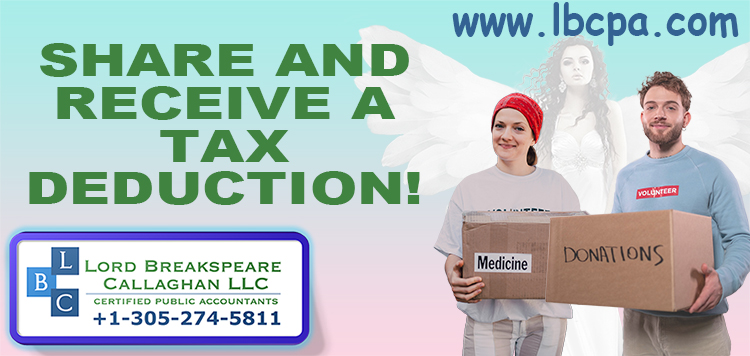LBCPA News 
Click here to go back
Special tax deduction helps most people give up to $600 to charity, even if they don’t itemize

The Internal Revenue Service reminds taxpayers that a special tax provision will allow more Americans to easily deduct up to $600 in donations to qualifying charities on their 2021 federal income tax return.
Ordinarily, people who choose to take the standard deduction cannot claim a deduction for their charitable contributions. But a temporary law change now permits them to claim a limited deduction on their 2021 federal income tax returns for cash contributions made to qualifying charitable organizations. Nearly nine in 10 taxpayers now take the standard deduction and could potentially qualify.
Under this provision, individual tax filers, including married individuals filing separate returns, can claim a deduction of up to $300 for cash contributions made
to qualifying charities during 2021. The maximum deduction is increased to $600 for married individuals filing joint returns.
Included in the Coronavirus Aid, Relief, and Economic Security (CARES) Act, enacted in March 2020, a more limited version of this temporary tax benefit originally only applied to tax-year 2020. The Taxpayer Certainty and Disaster Tax Relief Act of 2020, enacted last December, generally extended it through the end of 2021.
Cash contributions include those made by check, credit card or debit card as well as amounts incurred by an individual for unreimbursed out-of-pocket expenses in connection with their volunteer services to a qualifying charitable organization. Cash contributions don't include the value of volunteer services, securities, household items or other property.
The IRS reminds taxpayers to make sure they're donating to a recognized charity. To receive a deduction, taxpayers must donate to a qualified charity. To check the status of a charity, they can use the IRS Tax Exempt Organization Search tool.
Cash contributions to most charitable organizations qualify. But contributions made either to supporting organizations or to establish or maintain a donor advised fund do not. Contributions carried forward from prior years do not qualify, nor do contributions to most private foundations and most cash contributions to charitable remainder trusts.
In general, a donor-advised fund is a fund or account maintained by a charity in which a donor can, because of being a donor, advise the fund on how to distribute or invest amounts contributed by the donor and held in the fund. A supporting organization is a charity that carries out its exempt purposes by supporting other exempt organizations, usually other public charities.
Keep good records
Special recordkeeping rules apply to any taxpayer claiming a charitable contribution deduction. Usually, this includes obtaining an acknowledgment letter from the charity before filing a return and retaining a cancelled check or credit card receipt for contributions of cash.
For details on the recordkeeping rules for substantiating gifts to charity, see Publication 526, Charitable Contributions, available on IRS.gov.
Remind families about the Child Tax Credit
If you have any questions regarding accounting, domestic taxation, essential business accounting, international taxation, IRS representation, U.S. tax implications of Real Estate transactions or financial statements, please give us a call at 305-274-5811.
Source: IRS






